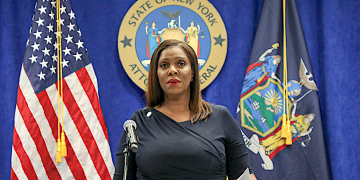My recent article on social media and branding received a lot of attention. I responded to a number of emails and had conversations with several people. I encourage feedback and comments on any of my articles.
That said, I recently came across a table depicting the results of a survey on how companies utilize social media. In this survey, 39 percent of all respondents ”“ by far the largest percentage ”“ indicated that the most important benefit of social media was to increase brand awareness. Although this study was done in Canada and I do have some questions on its testing methodology, the importance of brand awareness cannot be minimized. It also helps explain at least part of the strategy behind companies that expend considerable amounts of money in social media.
While this survey does not include a category for customer service ”“ another key benefit of social media and a significant survey weakness, it does denote the importance of using social media to better understand customers and increase new business growth. Adding “improve reputation” and the “ability to listen/monitor (sentiment)” totals 11 percent of the respondents, in line with other studies that also depict the importance of reputation management. The key takeaway from this survey is the important role of social media in brand awareness and the remaining top categories listed by the survey respondents.
This role of social media also extends to brand loyalty and customer stickiness, particularly in the business-to-consumer arena. Coupons and prizes are effective means of generating attention and driving sales. However, they don”™t engender long-term customer loyalty; that”™s a role for social media.
Social media allows companies to listen to their customers and quickly respond to their complaints. This two-way communication allows them to develop relationships with their customers and better understand the latter”™s thinking and actions. If customer actions are digitally driven (i.e. they buy something online), social media can track their purchase and inform the buyer about related upcoming sales and promotions. Word-of-mouth campaigns and special promotions have proven to be highly effective at eliciting loyalty.
A recent television commercial for the iPhone caught my attention. I wasn”™t impressed by the content of the commercial but rather, by its implication when the main (and only character) asked his iPhone for a joke. The interaction (implied friendship?) between them demonstrated trust and product loyalty.
According to a ClickFox survey, consumer loyalty for B-to-C businesses is built on exceptional customer service. This study also denotes the importance of rewards, notification about special offers and events and providing personalized products and services.
Most notably, a growing number of recent brand loyalty campaigns are designed to empower customers and urge them to share content and communicate about a brand with others. It is this brand loyalty loop ”“ the spreading of a brand among friends ”“ that is rapidly becoming the key component of several current and many planned marketing campaigns.
A word of caution: People”™s opinions online change very quickly. It is very important that a company constantly monitor its brand and loyalty online to maintain good communications with its customers and be able to quickly respond to both negative and positive comments. It”™s more than just customer service ”“ it”™s using social media to do business.
Brand and loyalty campaigns are two of the most important functions of social media. By utilizing the two-way communicative capability of social media, they can greatly influence their audience and when done well, can significantly increase sales and product awareness.
Bruce Newman is the vice president at The Productivity Institute L.L.C. in Carmel. He is also a social media strategist and the designer of a new service, wwWebevents.com. Follow him on LinkedIn, Twitter, Facebook and the Productivity Institute blog. He can be reached at bnewman@prodinst.com.
















